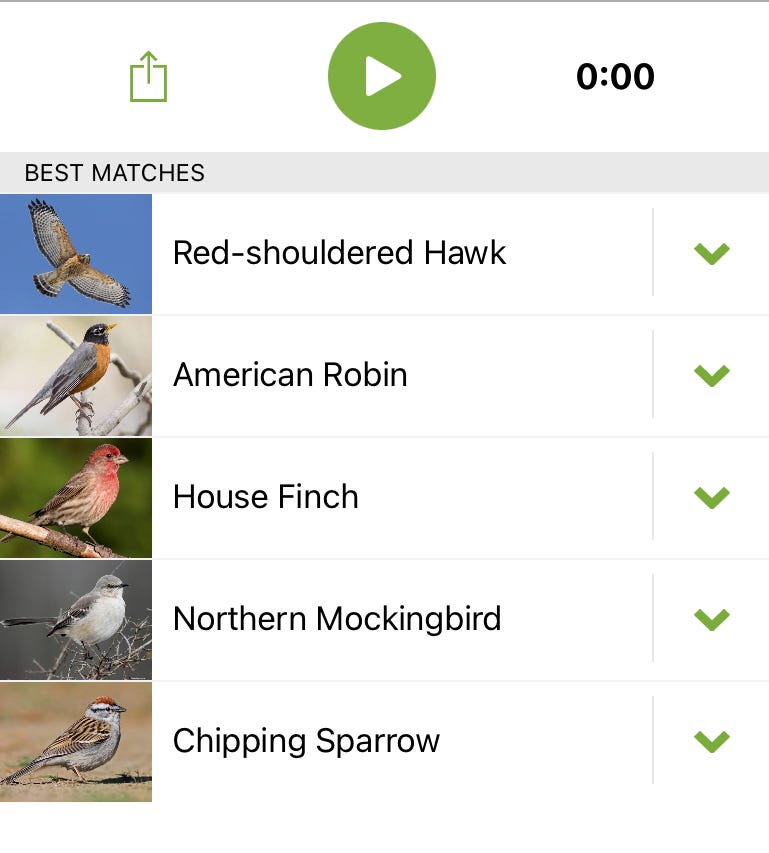Skipped Fragments last week, but I’m back in church today…
Twin Towers’ Memorial is not for the Birds
One of the remarkable nuggets in Ed Yong’s “An Immense World,” a book I continue to praise, is the alarming effect of lights on migratory birds. Specifically, a 2017 study used the annual 9/11 memorial in lower Manhattan to examine the unanticipated effects on migratory birds.
The extent of artificial light at night (ALAN) at regional and global scales has increased 5–10% annually in portions of North America and Europe and exponentially in some other regions (1), resulting in sky glow that is often significantly brighter than luminance of the natural sky. ALAN may affect a diverse array of nocturnally active animals, and recent studies have highlighted the need for primary research into these potential impacts (2, 3). The biological effects of anthropogenic light pollution may be especially significant for nocturnally migrating birds (2–6).
…
We took advantage of a unique opportunity to quantify birds’ responses to ALAN by monitoring numbers, flight patterns, and vocalizations of birds aloft during alternating periods of illumination and darkness in the powerful light beams of the National September 11 Memorial & Museum's (NSMM's) “Tribute in Light” (TiL) in New York, NY (Fig. 1A).
Their analysis estimated that 160,000 birds died each year because of the confusion that resulted from the “Tribute in Light.” The study extrapolates that, globally, hundreds of millions of birds may die through collision with buildings at night, or die exhausted following endless spiraling around a false navigation aid. There are several organizations working to preserve “dark sky” communities for star-gazing and such, but overall the light pollution we have created continues to alter the planet in unexpected (and now, expected) ways. Read more about it here.
Following this research, the memorial and the New York City Audubon Society agreed to collaborate on switching the lights off when masses of birds appear to be “stuck” in the exhibit. Also participating is the Cornell Lab of Ornithology, who can direct the lights to be switched off when radar indicates a mass.
Cornell is also the home of the (free!) Merlin app, an indispensable bird identification aid for any level of birder (I am a passive amateur at this pursuit, forever grateful for the bird shows during the worst months of COVID1). Based on one morning’s sound recording, here are a few recent visitors to my home.
Revisiting Church.
I recently shared a post about how I felt I was “in church” while golfing alone and during an outdoor musical evening. One engaged subscriber took me to church, er, the woodshed over the use of the term. The writer felt church was about worship, and hedonism wasn’t worship. There is an entire philosophy in that assertion, but I do not choose to argue that specific point. I will offer that people have been abusing the term likely since it became a term. Emily Dickinson offered:2
Some keep the Sabbath going to Church –
I keep it, staying at Home –
With a Bobolink for a Chorister –
And an Orchard, for a Dome –
Some keep the Sabbath in Surplice –
I, just wear my Wings –
And instead of tolling the Bell, for Church,
Our little Sexton – sings.
God preaches, a noted Clergyman –
And the sermon is never long,
So instead of getting to Heaven, at last –
I’m going, all along.
Hozier offered the song Take Me to Church, “inspired” by the Catholic church in Ireland. My interlocutor offered that church should be ‘uncomfortable,’ and Hozier would agree:
Take me to church
I'll worship like a dog at the shrine of your lies
I'll tell you my sins and you can sharpen your knife
Offer me that deathless death
In all seriousness, worship of a creator who remains engaged in one’s daily life should involve some discomfort - guidance and correction lands differently than constant affirmation. Jonathan Edwards famous sermon, “Sinners in the Hand of an Angry God.” in 1741 apparently resulted in discomfited men crying in the aisles.
The term - and as someone who once translated the New Testament from the Koine Greek as a student, it’s embarrassing I didn’t remember this immediately - originates from the Greek compound word ekklesia.3 In that footnote, you’ll see many opportunities to burn an afternoon learning the unfortunate evolution of the word from its original translation to “church.”
The word is a compound of two segments:
ek, a preposition meaning “out of,” and a verb,kaleo, signifying “to call” — hence, “to call out.”
A high-level consensus appears - to me - is that the term refers to an assembly of believers. If I am close to the mark here, my uses of the term last time are incompatible with any of the Christian interpretations. I was not among believers in the risen Christ, and neither was I in a building as per English translation dating from the 5th century or so. As a brief side note: it would be much easier to trace origins if the word church was derived from ekklesia, but alas: it is not.
Old English cirice, circe "place of assemblage set aside for Christian worship; the body of Christian believers, Christians collectively; ecclesiastical authority or power," from Proto-Germanic *kirika(source also of Old Saxon kirika, Old Norse kirkja, Old Frisian zerke, Middle Dutch kerke, Dutch kerk, Old High German kirihha, German Kirche).
This is probably [see extensive note in OED] borrowed via an unrecorded Gothic word from Greek kyriake (oikia), kyriakon doma "the Lord's (house)," from kyrios "ruler, lord," from PIE root *keue-"to swell" ("swollen," hence "strong, powerful").
Note how the Old English term introduces the concept of a place or house, something not traceable to ekklesia. So the word church was developed after the New Testament was concluded, and doesn’t directly represent the concept as presented therein. Church doesn’t even mean church!
In any case, I take the point that my use of the term was inappropriate. With all due respect to Emily Dickinson, the deeper point made by this lovely individual is the better view.
I’m just saying don’t hide behind the word ‘church,’ instead open yourself to more spirituality, whatever that may mean for you.
Absolutely correct. It was a quip, shorthand that I felt captured the moment and using a word I assumed would help the readers feel the moment as well. But there is much more to understand about these rare moments of serenity, and yes, underlying spirituality. As I work through this last trimester of my life, I no longer have the time for such shortcuts.
My engaged subscriber also dropped mention of a haunting novel that I will seek out and devour. Wise Blood, by Flannery O’Connor. Wikipedia offers this summary:
The novel concerns a returning World War II veteran who, haunted by a life-long crisis of faith, resolves to form an anti-religious ministry in an eccentric, fictionalized Southern city after finding his family homestead abandoned without a trace.
Yes, please.
I tend to cringe when I hear “during COVID” as if it has waned and faded away. Friends, colleagues, and family continued to contract COVID over the summer of 2023. It is very much not done with us.
A friend and fellow USAF veteran reminded me of this reference. A degree of culture expected in the Air Force, as contrasted with my Marine friends, whose knowledge of poetry is likely limited to verses that begin with “I don’t know but I’ve been told…”
It was difficult to select a single online source for this definition. It seems evident the intended meaning was assembly of those called, and sometime in translation the word “church” came to refer to the building instead of the gathered. There are numerous deep dives on this, including: https://truediscipleship.com/what-does-ekklesia-mean-3/ , https://www.ligonier.org/learn/articles/ekklesia-called-out-ones , and more.




Only read half, so far, but I didn't want to forget to mention Jonatha Brooke's "That's a Mean Lookin' Jesus on Your Wall," song, LOL. Now, back to your essay -- Preach-on John!